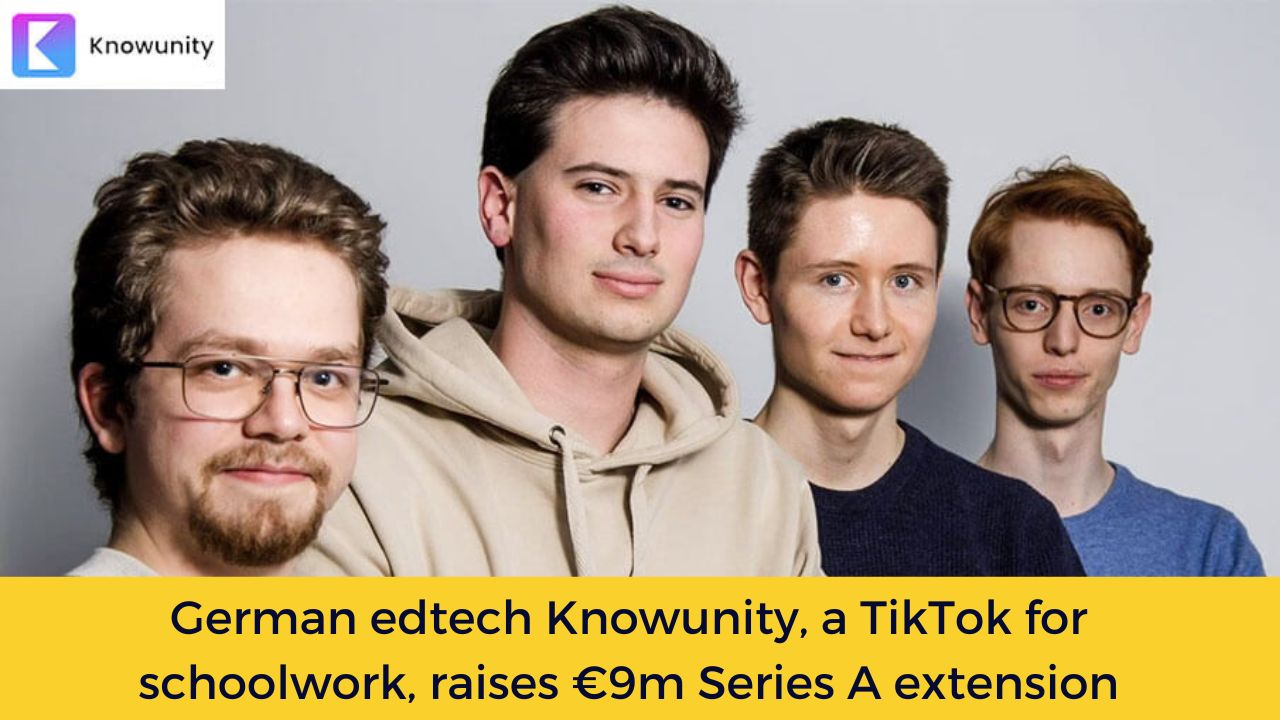Knowunity, a Berlin-based peer-to-peer learning app for secondary school students, has raised €9 million in its Series A extension round co-led by Stride and Redalpine with participation from existing investors Project A and Educapital, bringing its round total raised to €19 million after €10 million raise last year. The platform has had more than 600k study notes uploaded by students across a variety of subjects.
Knowunity is a peer-to-peer learning app for secondary school students based in Berlin. Users upload their own personal study notes and other resources to help fellow students grasp their school curricula and prepare for exams. The content on Knowunity spans everything from languages, science and mathematics to art and music, and is available in German, French, Spanish, English, Polish and Italian.
With the funds, Knowunity is looking to expand into the US. As per the company’s data, it has experienced strong growth in the last year, increasing its user base by 2m to 5.7m in the previous quarter of 2022 alone.
Co-founded by entrepreneurs, Benedict Kurz, Gregor Weber, Julian Prigl, and Lucas Hild, Knowunity provides a clean, vertically-focused mobile app that covers everything a student needs to have a great learning experience. It’s entirely peer-to-peer and enables students to create and publish their educational content to help learners better understand the course curriculum – all tailored to their country and in their language.
Students engage through direct messaging, and real support is provided via group learning and the power of the community. Through the platform’s creator tools, Knowunity allows students to build strong content, profiles, and followings that can be amplified both in-app and externally so they can boost their reach and generate a viral loop back to the product.
Speaking about the company, Co-founder of Knowunity Benedict Kurz, said:
We always felt that peer-to-peer content was way more helpful than most of the teachers’ content, as it was coming from an eye-to-eye, rather than a top-down, perspective. The platform has a built-in chat function allowing users to collaborate and offer group learning sessions. Catering to Gen Z, Knowunity also has creator tools allowing students to publish reels and videos, create profiles and build up personal followings. It might be the first digital learning app with influencers called “knowers”. The ones who upload the best and most popular content have up to 200k followers on the platform.
Students don’t get paid outright for uploading content, but some of the top knowers on the platform get small payouts on a monthly basis — what Kurz refers to as “pocket money” — which can be up to €250 a month depending on their success.
Kurz is quick to add that the key incentive for students to upload content is not the cash reward but the “social recognition they’re receiving from others and [the] intrinsic motivation to help others”.
Each piece of content is manually checked by Knowunity before being uploaded, but the platform offers pre-upload guidelines about what a helpful piece of content would look like.
For regular updates about Moodle, eLearning and edtech industry, please visit us regularly at https://lmsdaily.com. You can also like us on Facebook or follow us on Twitter, or Subscribe our YouTube Channel.




[…] to an official statement, adding a digital curriculum to the training offered in Industrial Training Institutes (ITIs) and polytechnics will enable the […]